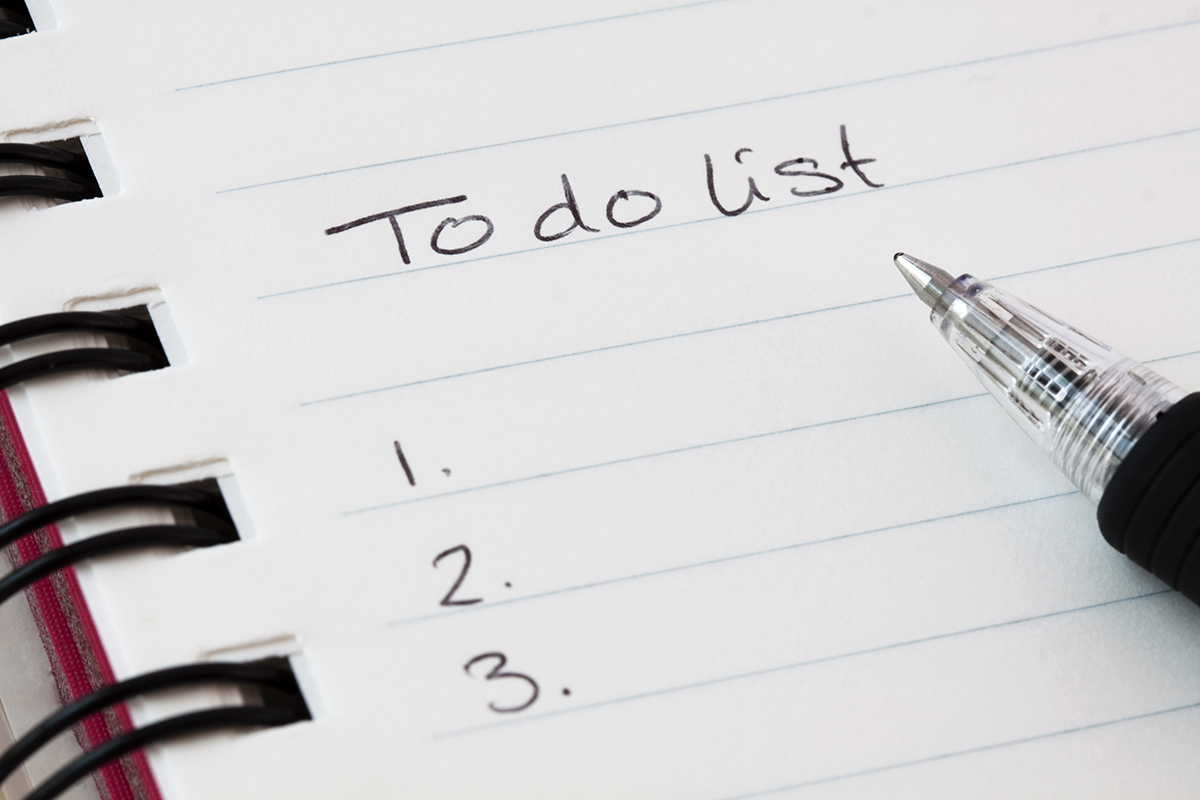Seven Tips for Improving Your Productivity

To do photo via istock.com/Synergee
If you’ve spent the bulk of the day clicking through Twitter and wishing you were still on vacation, you’re not alone. “‘Post-vacation hangover’ is an extremely common experience,” says Lindsay Miarmi, a neuropsychologist at Beth Israel Deaconess Medical Center.
Be that as it may, vacation is in the rearview mirror and—like it or not—it’s time to get back to reality. Make it happen with these tips from Dr. Miarmi:
1. Get well. If you spent your break binging on junk food, attending parties, and doing little else, it’s time to snap out of it. “Most people’s tendency is to overindulge on vacation, whether with food, alcohol, or staying up late. This creates a sort of ‘high’ in the short term, but just like the body, our brains eventually crash,” Miarmi says. “Trying to return to your normal diet and fitness routine as soon as possible is important.”
2. Take breaks. Occasionally putting work aside is actually more beneficial than trying to power through your brain fog, Miarmi says. “The more we attempt to push through and work beyond the natural limitations of our attentional capacity, [the more] we become distractible and subsequently less efficient, and are more prone to errors,” she says.
Just be smart about the breaks you take. Aimlessly scrolling through Instagram isn’t going to recharge your brain, but taking five to 10 minutes for a “restorative” activity—Miarmi recommends taking a walk, drinking a glass of water, or meditating—likely will.
3. Start with something easy. Miarmi says beginning the day with a small, easily doable task can get the creative juices flowing. “Once we get started, we feel accomplished, which can help with motivation and increase the likelihood of follow-through,” she explains.
4. Keep a list of distractions. When you finally get rolling on a task, don’t get derailed by distractions. Instead of sending that email or printing that document the second you think of it, write it down for later. Miarmi recommends working on your current project for an allotted amount of time, then attending to everything on your list.
5. Plan your day. Instead of bouncing haphazardly from one task to the next, map out your plan of attack in the morning. “A useful strategy is to develop a system for assigning a priority rating to each task,” Miarmi says. “I use an A, B, C system, such that ‘A’ tasks are of the highest importance.” Complete as many ‘A’ tasks as possible, then move down to less pressing matters.
6. Develop a morning routine. Consistently starting your day the same way will help you find a rhythm. The actual routine is up to you—Miarmi says she likes to look at her calendar and prioritize her to-do list over breakfast—but making one will help your days run smoothly.
7. Recognize when things aren’t right. An unproductive day here and there is normal. But if you find yourself totally unmotivated, day after day, it may be worth seeing a doctor. “Demotivation can be a sign of depression in some instances, in which case consultation with a mental health professional is always encouraged,” Miarmi says.


